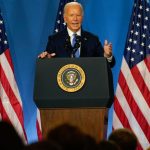In a recent turn of events, the META Corporation has decided to revoke the restrictions placed on former President Donald Trump’s social media accounts. This decision comes after months of debate and controversy surrounding the banning of Trump from various social media platforms following the events at the Capitol on January 6th, 2021.
The ban of Trump from popular social media platforms like Facebook and Twitter was met with fierce opposition from his supporters, who claimed that the move was a violation of free speech. On the other hand, many advocates for the ban argued that Trump’s posts were inciting violence and spreading misinformation, thus justifying the need for his removal from these platforms.
The decision to lift the restrictions on Trump’s accounts marks a significant shift in the way social media companies approach moderating content from public figures. It sets a precedent for how these platforms will handle problematic content in the future, especially when it comes to political figures with large followings.
Critics of the decision fear that allowing Trump back onto these platforms could reignite the spread of misinformation and hate speech, potentially leading to further violence and unrest. However, proponents argue that barring someone from accessing social media infringes on their right to free speech, regardless of the content of their posts.
META’s choice to lift the ban on Trump also raises questions about the power and influence that social media companies have in shaping public discourse. By controlling who can and cannot participate in the online conversation, these platforms wield immense influence over public opinion and the political landscape.
Moving forward, it remains to be seen how Trump’s reinstatement on social media will impact the online environment and the broader discourse in society. Will his return spark a resurgence of his supporters, or will it lead to greater division and controversy? Only time will tell how this decision plays out in the ever-evolving landscape of social media and politics.



